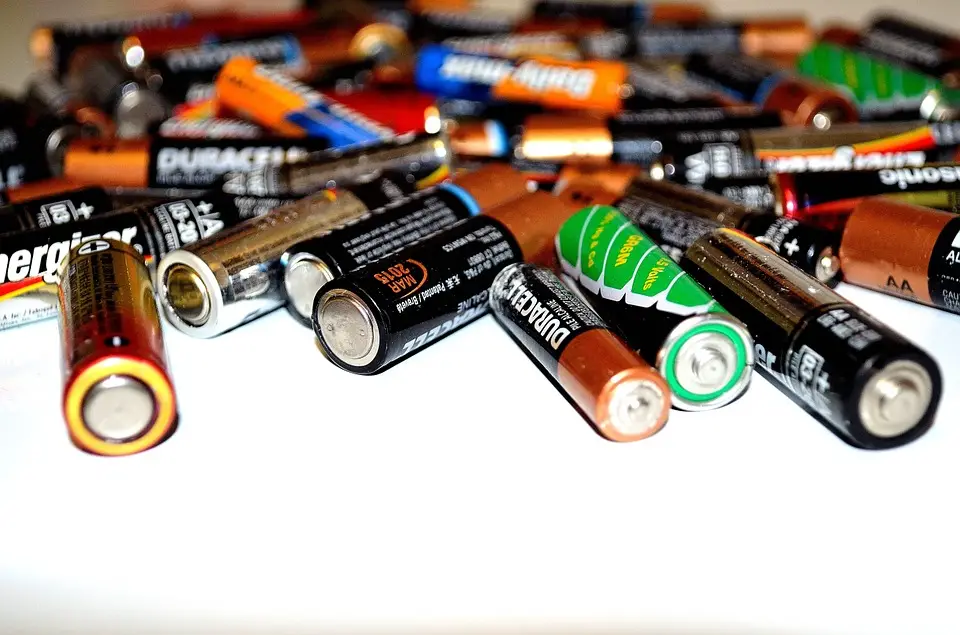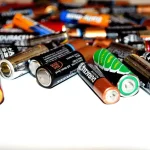
As Darko Bicak/Poslovni Dnevnik writes on the 3rd of August, 2020, although in Croatia we often complain that we lag considerably far behind most other European Union member states in terms of waste management, the latest data from the EU statistical office Eurostat shows that Croatia is in actual fact the absolute leader in terms of the disposal of batteries and accumulators.
According to Eurostat, in the last three years alone, the Republic of Croatia has collected as much as 96% of all of its sold batteries and accumulators for recycling. The EU average in this regard is a mere 48%, and when it comes to other countries, Poland is behind Croatia with 81%, Luxembourg with 69% and Belgium with 62%. At the back of the line, with less than 40% of the collected waste of this type, lie Spain, Italy, Marla, Slovenia, Greece, and Portugal and at the very end are Cyprus and Estonia with a mark of just 30%. The market for batteries and accumulators across the EU is relatively stable and in 2010 it amounted to 176,000 tonnes, and by 2013, the year Croatia joined the bloc, it dropped to 169,000 tonnes and in 2018 it climbed back up to 191,000 tonnes.
In contrast, there is a significant increase in the amount of collected waste of this type, going from 55,000 tonnes in 2010 to a much higher 88,000 tonnes a couple of years ago in 2018. This means that the share of collected and later disposed of waste batteries and accumulators rose from 35 percent in 2010 to 48 percent in 2018, which is the last processed set of figures in this statistic.
Croatia has a relatively well-organised system for collecting this type of special waste, which takes place through seven companies registered with the Fund for Environmental Protection and Energy Efficiency (EPEEF). The biggest player here is certainly the Zagreb-based CIAK, followed by Flora VTC from Virovitica, Friš from Križevci, Metis (Cios group) from Kukuljanovo, OS from Zadar, STR akumulator from Đurđevac and Univerzal from Varaždin. The Fund points out that the system of collecting and recovering batteries and accumulators across Croatia was established back in 2007.
“A legal or natural person who places batteries or accumulators on the Croatian market of the EPEEF pays a certain fee which is used for the organisation of the entire system of the collection and disposal of this type of waste. The goal is to reduce the negative impact on the environment with such a systematic approach,” they say from the Fund. They explain that in other management systems of special categories of waste, Croatia records very good results and has high collection rates. This sector will gain even more importance in the coming period due to the rapid development of electric vehicles, for which, in turn, the battery is a key component. According to the International Renewable Energy Agency, there are six million electric vehicles in the world today, and it is projected that this number will rise to 50 million by the year 2030. The value of this new market is estimated at around 250 billion euros by 2025 at the EU level, while the market for all other batteries will reach barely 10 billion euros by 2027.
As pointed out by the director of the Sector for Energy and Environmental Protection of the Croatian Chamber of Commerce (HGK), Marija Šćulac Domac, the key niche is electric cars and lithium-ion batteries, which are expected to grow by 8 to 9 percent annually. Currently, the demand for batteries is high. Panasonic is meeting the Japanese demand, Samsung is meeting the Korean demand, and Europe needs to find its own source. Sweden’s Northvolt is the only large European manufacturer with a large factory in Poland, and France and Germany are launching an initiative to research and develop batteries for electric vehicles with an investment of between five and six billion euros.
The Zagreb company Munja is, at least as far as is known, the only Croatian manufacturer of accumulators and batteries. Zagreb’s CIAK is also a significant player in the market, but it is primarily a general importer, agent and distributor for Croatia when it comes to many global battery brands such as Varta, Optima, Trojan, Faam, Miac, Leoch and others. They also have their own CIAK brand, but they don’t have, at least as far as is known, production in the Republic of Croatia, and their CIAK Starter batteries arrived from the Johnson Controls factory (Varta, Optima) located in the Czech Republic.
Here in Croatia, there are other companies involved in the sector, including Grom from Velika Gorica and the aforementioned Friš that have their own brands of batteries and accumulators, but which also probably have supplies from manufacturers from abroad.
For more, follow our lifestyle page.










